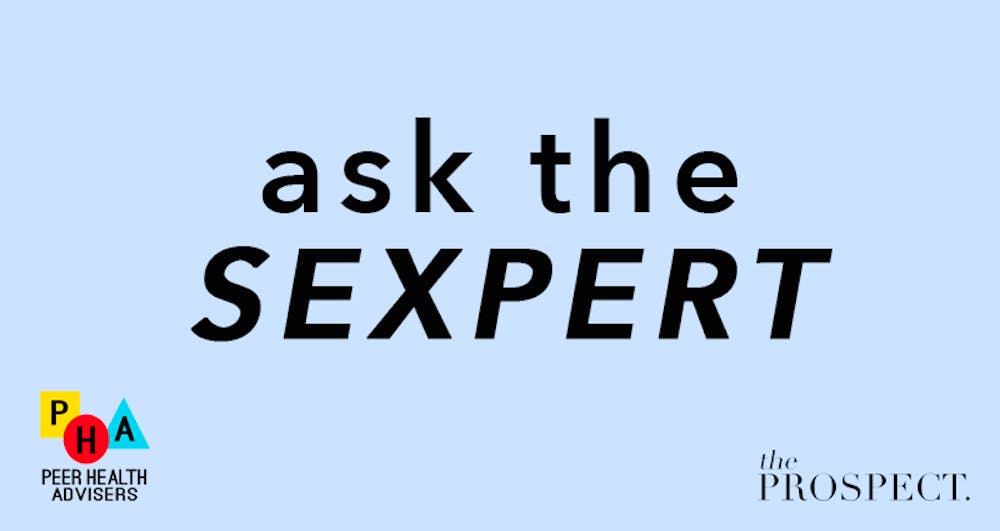Dear Sexpert,
I’ve started to see a guy, and I’ve been struggling to talk to him about the possibility of me or both of us going on PrEP. I myself haven’t had former sexual partners, and he claims he hasn’t had sexual partners since he was last tested, but we aren’t yet exclusive in our relationship. I’m worried that going on PrEP — or suggesting he do so also — will breach trust in our relationship, but I also want to prioritize safety.
— PrEParing Partner
Hi PrEParing Partner,
It’s normal to have concerns and questions about using PrEP and discussing your use of it with your partner. Taking PrEP (like other preventative medications) is an indication of investment in your — and your partner’s — health, not a barometer of your trust. Hopefully with a little preparation (pun intended) and well-timed conversation, you can prioritize safety for both of you!
First, let’s discuss what PrEP is. PrEP (pre-exposure prophylaxis) is a prescription medication that reduces the risk of getting human immunodeficiency virus (HIV) from sex by 99 percent when taken properly. It is intended for HIV-negative individuals and available in oral pill-form, Descovy and Truvada, and a bimonthly injection, Apretude. The latter two of these options have been approved for individuals with vaginas in addition to individuals with penises. These drugs block the enzyme HIV needs to replicate in the body, reducing the risk of contracting the virus when used as prescribed.
PrEP could be worth exploring if:
- You’re in a serodiscordant relationship, meaning one partner is HIV-positive and the other is negative.
- One or more partners engage in activities that increase HIV transmission risks, such as having multiple sexual partners, lack of or inconsistent condom use, and sharing needles.
- You do not know a partner’s HIV status.
Before starting oral PrEP, patients get an HIV test. Patients either take PrEP as one tablet per day for seven days before contact and every day following as needed, or immediately before having sex — a method called “on-demand.” Taking oral PrEP requires a visit to a healthcare provider every 3 months for HIV testing, prescription refills, and a follow-up; for injectable PrEP (Apretude), patients will need to see a provider for their first injection. They receive another injection in one month, returning every two months for testing and the injection.
Sexual health appointments, sexually transmitted infection (STI) testing, and barrier methods such as condoms are available through Sexual Health and Wellness at University Health Services. Remember that if you and/or your partner decide to go on PrEP, it is only effective against HIV; condoms should be used to lower the risk of contracting other STIs. Consistent condom use and regular testing are essential to ensuring sexual health.
Sharing what you’ve learned about PrEP can be a productive way to frame your conversation with your partner. You will want to emphasize shared responsibility, collaboration, and trust in your discussion. Start by finding a good time and place to discuss this where your conversation won’t feel rushed or distracted. Lead with your feelings and invite his perspective on exploring PrEP together.
Be prepared to reassure him that your interest in PrEP stems from a desire to protect yourself and him, not from mistrust. Taking PrEP is about taking care of each other, and it does not suggest a high-risk lifestyle for either partner. Rather, it serves as an additional tool for promoting sexual health, just like using condoms.

Be prepared, too, to discuss any barriers to accessing PrEP, such as cost or time. The Student Health Plan (SHP) insurance covers emtricitabine/tenofovir (generic Truvada) and Apretude (injectable PrEP) at no cost to students. Other insurances may not cover every PrEP option, or a co-pay may be needed, so speak to your insurance provider to find out more information. Keep in mind that consistently taking the daily pill without missing doses and committing to routine testing and check-ups may be difficult lifestyle adjustments at first. But with time and tricks to help create a routine (e.g., calendar reminders, app tracking), keeping up with PrEP can easily become second-nature.
If your partner is fully supportive of your decision to begin treatment with PrEP, great! You can discuss next steps and work through solutions to any remaining concerns or issues accessing the drug and maintaining the regimen. If he’s hesitant, you might provide more resources, or suggest you see a healthcare provider together to learn more. If he resists or dismisses your concerns, consider your own values. Just remember that protecting your health is paramount.
— The Sexpert
The Sexpert is a monthly column written in collaboration between The Prospect and the Peer Health Advisers (PHA) program. For more information, you can visit the Sexpert’s website. If you are interested in submitting a question, you can send it through this form: tinyurl.com/princetonsexpert.








